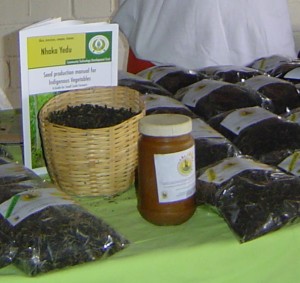Number plates
These are not required on your vehicle. Even though the new ones could only be made by some senior politician’s company, and they were found to be the same as a neighbouring country’s, and they have a cute little hologram in them, you may drive around for many months without displaying any, front or back. If you are stopped, claim they must have fallen off on the last pothole, they were in your back window but got lost somehow, or if all that fails, give them your license (see below).
License
You are required to drive with a license (or several). The Zimbabwe license is printed in green ink, and has ’10′ printed prominently on it in several places. Should you be stopped for any reason, you are required to hand you license to the ZRP, at which point you will be free to go. Your license will make ANYTHING, okay. Speeding, driving with undue care, having an unroadworthy vehicle, proceeding through a red light, etc. Right of way If your car is bigger, newer, shinier, or more expensive, then you have the right of way. You can go through the lights first, or the intersection if the lights are not working, you have the right o believe that the lights are not working and therefore you can go through, and everyone else must stop. If your car has four wheels, you can obviously go faster than any two wheeled vehicle (with or without motor), and they must give you right of way (you should not even look).
Traffic Lights
You MUST creep forward at the lights. This is easily done if you have a new automatic. Just don’t bother to keep your foot on the brake, and do not take it out of drive. If you drive a manual transmission, you must keep it in gear (do NOT save fuel), and slip the clutch. The reason for this is simple. The lights can see you. And they appreciate you are important and NEED to be somewhere. The lights, therefore, will change more quickly if you creep into the intersection. Even though we can afford super lights, that can see, we cannot afford road marking paint. So ignore where the old stop line used to be, and stop only a paper thickness away from the intersection (even if you cannot see the lights from there) – but do not accelerate rapidly away from that position, finish your cell call first. If this appears to annoy others, in any way, justify yourself (for being slow or fast), as “you thought the lights were broken”.
Overtaking
Multi lane intersections are a good place to overtake, and show off, that you have a faster, newer car and therefore the right of way. Pull into a centre lane (or whichever is empty), and then make a wide (just turn) into the turning lane (right or left). This may also be done, pulling into a turning lane, and then going straight, forcing other traffic to avoid you and turn a newspaper vendor into road pizza (plenty more where they came from). Stopping The yellow curbs, and all yellow lines, do not apply to you. Other people yes, but not you. You may stop there to talk on your cell phone (which is not obligatory, cell phones should be spoken into at speed, both speed of voice, and speed of vehicle). You may stop there while you ‘just dash in’ to pay your DSTV subscription, pick up passengers, unload a delivery of generators, etc, (even though the ‘dash’ includes times spent in two queues). It is recommended you pull into an intersection, and block traffic approaches on the ‘smaller’ road, while you let off passengers into the larger road’s stream of traffic.
Parking
The sign in front of the grocery shop saying, “No Stopping in Front of Entrance” does not apply to you. After all, you are ‘just dashing in’ to get your week’s foodstuffs. And the people coming out with shopping trolleys ‘will control them’.
School zones
The signs that say ‘No Stopping’ are put there (or were put there, many have been conveniently removed or pushed down now) for other parents. No one would DARE turn your ‘precious little bundle’ into a road pizza. And your children are entering a learning institution. Teach them how to be aloof from ‘the laws of others’. Stop right on the pedestrian crossing. Do not pull over where the road widens, but in the narrowest part. Teach your kids to ‘dash’. Looking both ways is someone else’s job. Do not leave the stream of traffic. You will never get back into it again.
Four Way Flashers
If you have your four way flashers on, no other rules of the road need apply. You may stop in a centre lane to let passengers down. You may turn left from a centre lane. You may stop, as long as necessary, to wait for correct change, (and argue about it) from a newspaper vendor. You may stop in a centre lane and change a tyre, or check that noise under the bonnet.
Road repairs
These are best done in the stream or traffic, or potential stream. Do not attempt to pull off to the verge, as someone might miss you. This is especially the case when in hilly country, where there may be blind rises and fast moving traffic. In addition, in hilly country, you must not allow gravity to assist in helping you to clear your vehicle or large truck from the stream of traffic. Intersections are also a good place to break down, and if a repair vehicle comes by and takes yourself and parts away for fixing, on no account must you use gravity, that vehicle, or any labour, to clear the breakdown out of the way, even if only a meter away. People returning to the scene may not find the broken down vehicle.










